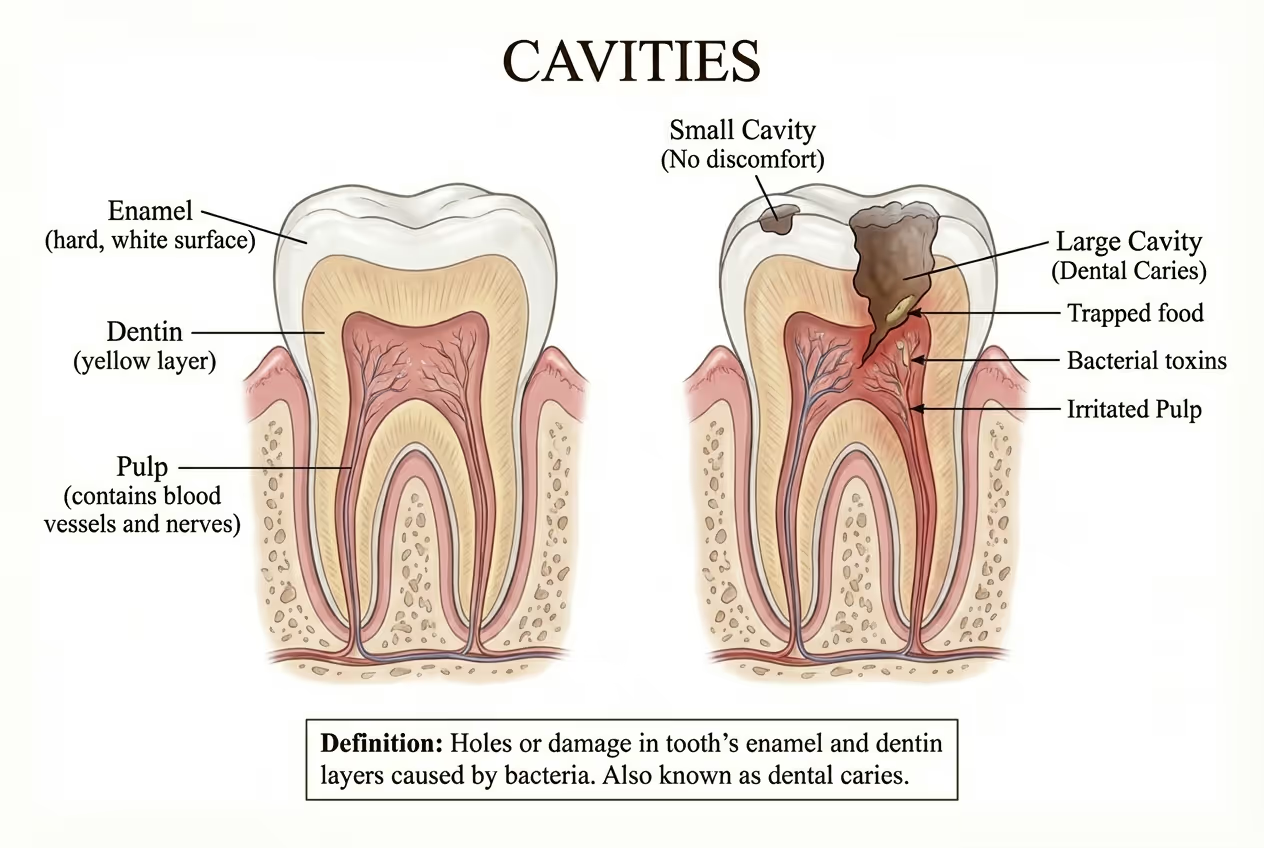
Cavities refer to the holes or damage found in the two outer layers of a tooth: the enamel and the dentin. The enamel is the hard, white surface on the exterior, while the dentin is the yellow layer situated just beneath it. Together, these layers protect the inner living tissue of the tooth, known as the pulp, which contains blood vessels and nerves. Cavities are the result of bacteria in the mouth. Small cavities might not cause any discomfort and can go unnoticed by the individual. However, larger cavities can trap food, leading to irritation of the tooth's inner pulp due to bacterial toxins or exposure to foods that are cold, hot, sour, or sweet, resulting in a toothache. Cavities are also commonly known as dental caries.




